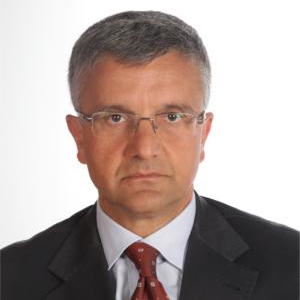Frontiers on Thermal Machines and Energy Systems
A special issue of Energies (ISSN 1996-1073). This special issue belongs to the section "J: Thermal Management".
Deadline for manuscript submissions: closed (30 April 2023) | Viewed by 4323
Special Issue Editors
Interests: engine thermal management; thermal machines; energy systems; energy efficiency; energy recovery; energy planning
Special Issues, Collections and Topics in MDPI journals
Interests: energy recovery; engine thermal management; thermal machines; energy systems; energy efficiency; ORC-based power unit; volumetric machine
Special Issues, Collections and Topics in MDPI journals
Interests: engine thermal management; thermal machines; energy systems; energy efficiency; energy recovery; energy planning; carbon finance
Special Issues, Collections and Topics in MDPI journals
Special Issue Information
Dear Colleagues,
The aim of this Special Issue is to collect papers related to recent advances in energy systems and their thermal components, with a particular focus on thermal machines. This field involves compressors, pumps, turbines, expanders, and heat exchangers. Papers in which overall energy conversion systems are studied and where different components are integrated and optimized are particularly welcome.
Nowadays, energy systems play a crucial role in the path towards the need to reduce primary energy consumption and CO2 emissions. Indeed, energy conversion systems are present in every sector: power generation, residential, transportation, and industry. They are needed to transform primary energy into useful forms: thermal, mechanical, or electrical. Global energy demand is still increasing, particularly during the recovery from COVID-19, which caused a decline in global energy consumption in 2020, and about 80% of global primary energy is still derived from fossil fuels. Therefore, much effort is needed to improve energy conversion efficiency, not only for traditional energy systems, but also for renewable-based ones.
Hence, in this Special Issue recent advances in energy systems are related to efficiency improvements in renewable-based systems, which are particularly involved in energy reduction methods: waste heat recovery opportunities, refrigeration plants, optimized thermal management options, and transportation powertrains. Energy efficiency assessment can be related to innovative layouts and system arrangements or to original control strategies, but improvements in thermal components are the ones that have the most important impact. They can be achieved through prototyping and testing or thanks to analytical and numerical studies aimed at designing devices and verifying their thermal and fluid-dynamic behaviour in off-design conditions.
Prof. Dr. Davide Di Battista
Dr. Fabio Fatigati
Prof. Dr. Roberto Cipollone
Guest Editors
Manuscript Submission Information
Manuscripts should be submitted online at www.mdpi.com by registering and logging in to this website. Once you are registered, click here to go to the submission form. Manuscripts can be submitted until the deadline. All submissions that pass pre-check are peer-reviewed. Accepted papers will be published continuously in the journal (as soon as accepted) and will be listed together on the special issue website. Research articles, review articles as well as short communications are invited. For planned papers, a title and short abstract (about 100 words) can be sent to the Editorial Office for announcement on this website.
Submitted manuscripts should not have been published previously, nor be under consideration for publication elsewhere (except conference proceedings papers). All manuscripts are thoroughly refereed through a single-blind peer-review process. A guide for authors and other relevant information for submission of manuscripts is available on the Instructions for Authors page. Energies is an international peer-reviewed open access semimonthly journal published by MDPI.
Please visit the Instructions for Authors page before submitting a manuscript. The Article Processing Charge (APC) for publication in this open access journal is 2600 CHF (Swiss Francs). Submitted papers should be well formatted and use good English. Authors may use MDPI's English editing service prior to publication or during author revisions.
Keywords
- energy efficiency
- waste heat recovery
- turbine
- compressor
- expander
- heat exchanger
- pump
- volumetric machines
- dynamic machines
- organic Rankine cycle
- power plant
- refrigeration plant
- combined plant
- fluid dynamic







